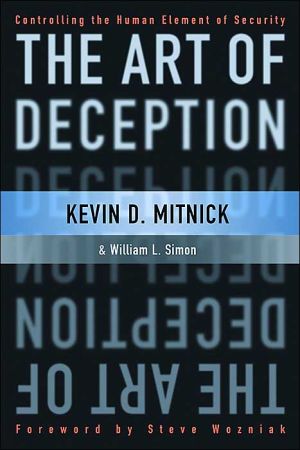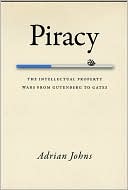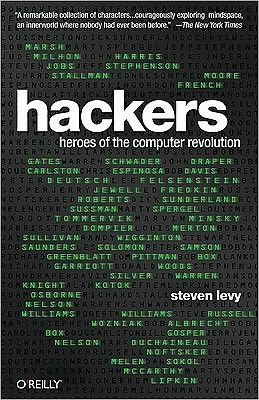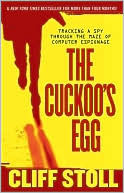Cyber War: The Next Threat to National Security and What to Do about It
Richard A. Clarke warned America once before about the havoc terrorism would wreak on our national security — and he was right. Now he warns us of another threat, silent but equally dangerous. Cyber War is a powerful book about technology, government, and military strategy; about criminals, spies, soldiers, and hackers. This is the first book about the war of the future — cyber war — and a convincing argument that we may already be in peril of losing it.\ Cyber War goes behind the "geek talk"...
Search in google:
Richard A. Clarke warned America once before about the havoc terrorism would wreak on our national security — and he was right. Now he warns us of another threat, silent but equally dangerous. Cyber War is a powerful book about technology, government, and military strategy; about criminals, spies, soldiers, and hackers. This is the first book about the war of the future — cyber war — and a convincing argument that we may already be in peril of losing it. Cyber War goes behind the "geek talk" of hackers and computer scientists to explain clearly and convincingly what cyber war is, how cyber weapons work, and how vulnerable we are as a nation and as individuals to the vast and looming web of cyber criminals. From the first cyber crisis meeting in the White House a decade ago to the boardrooms of Silicon Valley and the electrical tunnels under Manhattan, Clarke and coauthor Robert K. Knake trace the rise of the cyber age and profile the unlikely characters and places at the epicenter of the battlefield. They recount the foreign cyber spies who hacked into the office of the Secretary of Defense, the control systems for U.S. electric power grids, and the plans to protect America's latest fighter aircraft. Economically and militarily, Clarke and Knake argue, what we've already lost in the new millennium's cyber battles is tantamount to the Soviet and Chinese theft of our nuclear bomb secrets in the 1940s and 1950s. The possibilities of what we stand to lose in an all-out cyber war — our individual and national security among them — are just as chilling. Powerful and convincing, Cyber War begins the critical debate about the next great threat to national security. The New York Times - Michiko Kakutani In these pages Mr. Clarke uses his insider's knowledge of national security policy to create a harrowing—and persuasive—picture of the cyberthreat the United States faces today.
1 Trial Runs 12 Cyber Warriors 333 The Battlespace 694 The Defense Fails 1035 Toward a Defensive Strategy 1516 How Offensive? 1797 Cyber Peace 2198 The Agenda 257Glossary 281
\ From Barnes & NobleRichard A. Clarke was the first senior White House official with responsibility for cyber war and cyber security. Since leaving government, he hasn't let down his guard. Like his early warnings about al-Qaeda to the Clinton and Bush administrations, Cyber War is intended as a wake-up call that begins with an alarm and then lays down details which will rivet you to attention. This sobering book isn't written for reclusive nerds: Its information about cyber espionage and threats is comprehensive, accessible, and hotter news than tomorrow's headlines. (Hand-selling tip: With his bestselling books, Against All Enemies and Your Government Failed You, Clarke has become a sought-after media expert on national security questions.)\ \ \ \ \ \ Publishers WeeklyOn today's battlefields computers play a major role, controlling targeting systems, relaying critical intelligence information, and managing logistics. And, like their civilian counter-parts, defense computers are susceptible to hacking. In September 2007, Israeli cyber warriors "blinded" Syrian anti-aircraft installations, allowing Israeli planes to bomb a suspected nuclear weapons manufacturing facility (Syrian computers were hacked and reprogrammed to display an empty sky). One of the first known cyber attacks against an independent nation was a Russian DDOS (Deliberate Denial of Service) on Estonia. Since it can rarely be traced directly back to the source, the DDOS has become a common form of attack, with Russia, China, North Korea, the U.S., and virtually every other country in possession of a formidable military having launched low-level DDOS assaults. Analysts across the globe are well aware that any future large-scale conflict will include cyber warfare as part of a combined arms effort. Clarke and Knake argue that today's leaders, though more computer savvy than ever, may still be ignorant of the cyber threats facing their national security. \ Copyright © Reed Business Information, a division of Reed Elsevier Inc. All rights reserved.\ \ \ Michiko Kakutani"Chilling... [A] harrowing — and persuasive — picture of the cyberthreat the United States faces today."\ \ \ \ \ New York Times Book ReviewFor AGAINST ALL ENEMIES: “Against All Enemies is too good to be ignored. . . . It is a rarity among Washington-insider memoirs—it’s a thumping good read.”\ \ \ \ \ Financial Times"Will strengthen Clarke’s claims as one of the founding fathers of cybersecurocracy....It is worth buying this book if only for his pithy five-page vision of this coming apocalypse and a return to stone-age conditions within a week, all because of a few pesky hackers and viruses."\ \ \ \ \ Booklist"In this chilling and eye-opening book, Clarke and Knake provide a highly detailed yet accessible look at how cyber warfare is being waged and the need to rethink our national security to face this new threat."\ \ \ \ \ Slate"[CYBER WAR] may be the most important book about national-security policy in the last several years."\ \ \ \ \ Wall Street Journal"Clarke and Knake are right to sound the alarm."\ \ \ \ \ Wall Street Journal“Clarke and Knake are right to sound the alarm.”\ \ \ \ \ Booklist“In this chilling and eye-opening book, Clarke and Knake provide a highly detailed yet accessible look at how cyber warfare is being waged and the need to rethink our national security to face this new threat.”\ \ \ \ \ Financial Times“Will strengthen Clarke’s claims as one of the founding fathers of cybersecurocracy....It is worth buying this book if only for his pithy five-page vision of this coming apocalypse and a return to stone-age conditions within a week, all because of a few pesky hackers and viruses.”\ \ \ \ \ Slate“[CYBER WAR] may be the most important book about national-security policy in the last several years.”\ \ \ \ \ Library JournalToday's global society is totally dependent on the complex communications networks that connect individuals, businesses, and governments. Attacking these networks is relatively easier and cheaper for both governments and terrorists than more overt acts; it could also cause even more widespread and long-lasting damage. Clarke (Against All Enemies: Inside America's War on Terror), who was a White House security adviser to Presidents from Reagan through Clinton, discusses the various points of cyber vulnerability and critiques American efforts to protect its vital infrastructure. An electronic first strike could lead to an uncoordinated retaliation that could rapidly escalate out of control. Governments and companies all over the world are hard at work developing both offensive and defensive software programs, policies, and procedures to deal with this immediate threat, but Clarke wants to encourage more public debate on a topic that has been dominated by the technical experts. He previously wrote a technothriller, Breakpoint, on this very issue. VERDICT On an important subject, this book is written for general readers, although undergraduates could benefit from it as well. However, the lack of both a bibliography and an index (not to mention footnotes) is a serious deficiency.—Daniel K. Blewett, Coll. of DuPage Lib., Glen Ellyn, IL\ \ \ \ \ Michiko KakutaniIn these pages Mr. Clarke uses his insider's knowledge of national security policy to create a harrowing—and persuasive—picture of the cyberthreat the United States faces today.\ —The New York Times\ \







